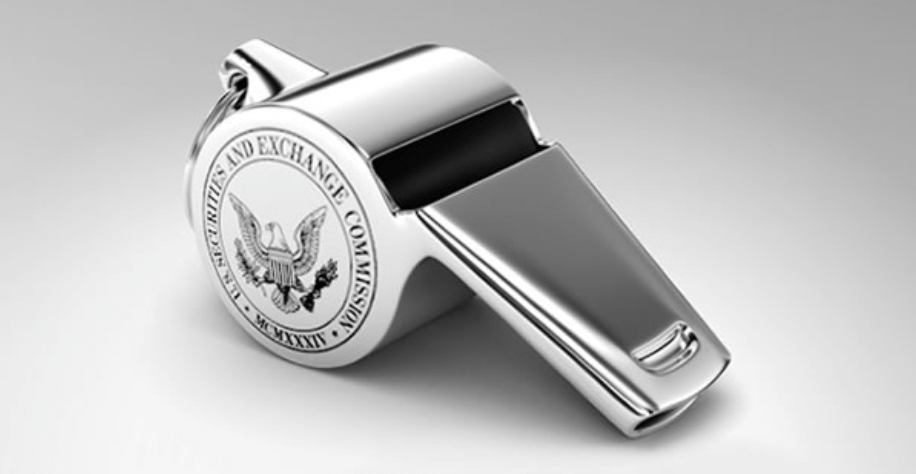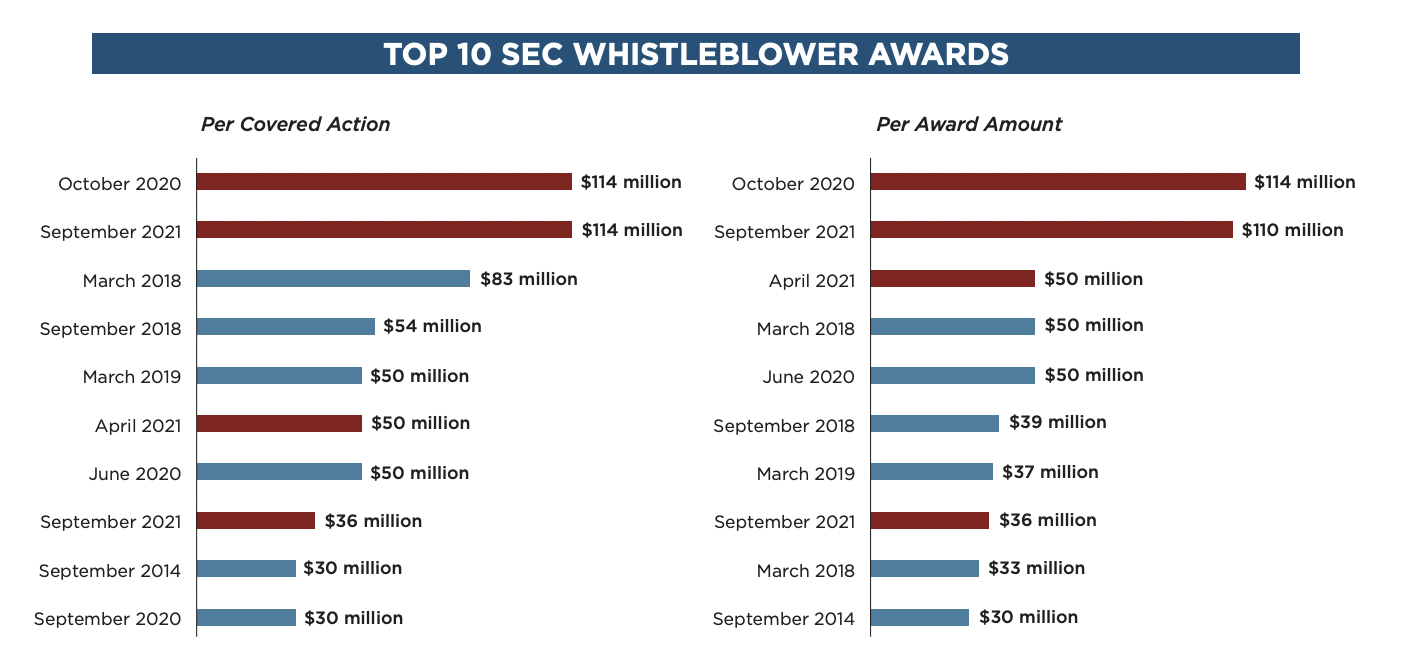SEC Amends Whistleblower Rules to Incentivize Whistleblower Tips

On August 26, 2022, the Securities and Exchange Commission adopted two amendments to the rules governing its whistleblower program.
The first rule change allows the Commission to pay whistleblowers for their information and assistance in connection with non-SEC actions in additional circumstances.
The second rule affirms the Commission’s authority to consider the dollar amount of a potential award for the limited purpose of increasing an award but not lowering an award.
Specifically, the SEC amended Rule 21F-3 to allow the Commission to pay whistleblower awards for certain actions brought by other entities, including designated federal agencies, in cases where those awards might otherwise be paid under the other entity’s whistleblower program. The amendments allow for such awards when the other entity’s program is not comparable to the Commission’s own program or if the maximum award that the Commission could pay on the related action would not exceed $5 million.
Further, the amendments affirm the Commission’s authority under Rule 21F-6 to consider the dollar amount of a potential award for the limited purpose of increasing the award amount, and it would eliminate the Commission’s authority to consider the dollar amount of a potential award for the purpose of decreasing an award.
The SEC’s whistleblower program was established in 2010 to encourage individuals to report high-quality tips to the Commission and help the agency detect wrongdoing and better protect investors and the marketplace.
The program got off to a slow start (the SEC issued its first-ever whistleblower award (a $50,000 payout) on August 21, 2012), but over the years, the quantity and amount of the awards have seen a consistent trend up, supporting the success of the program.
- 9 individuals were awarded over $32 million in 2014
- 8 individuals were awarded over $5 million in 2015
- 13 individuals were awarded around $82 million in 2016
- 12 individuals were awarded around $43 million in 2017
- 13 individuals were awarded around $147 million in 2018
- 8 individuals were awarded around $61 million in 2019
- 58 individuals were awarded around $349 million in 2020
- 108 individuals were awarded around $564 million in 2021
The increase in monetary awards coincides with an increase in tips by year:
- 3001 tips submitted in 2012
- 3238 tips submitted in 2013
- 3620 tips submitted in 2014
- 3923 tips submitted in 2015
- 4218 tips submitted in 2016
- 4484 tips submitted in 2017
- 5282 tips submitted in 2018
- 5212 tips submitted in 2019
- 6911 tips submitted in 2020
- 12,210 tips submitted in 2021
Most of the top 10 biggest awards have been paid out in the past two years:

The program has made significant contributions to the effectiveness of the agency’s enforcement of federal securities laws. Since the program’s inception, enforcement matters brought using original information from meritorious whistleblowers have resulted in orders for more than $5 billion in total monetary sanctions, and the Commission has awarded more than $1.3 billion to 281 individuals.
The whistleblower rule amendments will become effective 30 days after publication in the Federal Register.
For further information about this article, please contact an SEC attorney at (561) 416-8956 or by email at [email protected]. This article is provided as a general informational service to clients and friends of Hamilton & Associates Law Group and should not be construed as, and does not constitute, legal advice on any specific matter, nor does this message create an attorney-client relationship. For more information concerning the rules and regulations affecting Whistleblower submissions, SEC reporting requirements, SEC registration, and OTC Markets and SEC disclosure requirements pursuant to amended Rule 15c-211, please contact Hamilton and Associates at (561) 416-8956 or by email at [email protected]. Please note that the prior results discussed herein do not guarantee similar outcomes.






